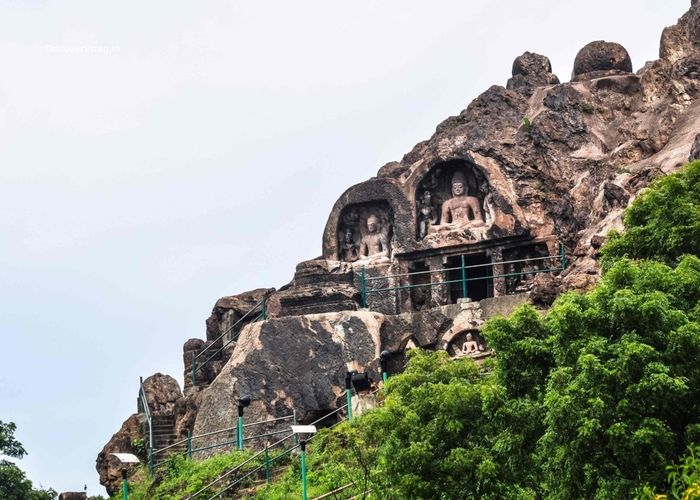Indian Heritage & Culture
INTACH Efforts to Protect Buddhist Site
- 13 Jan 2020
- 3 min read
Why in News
The Indian National Trust for Art and Cultural Heritage (INTACH), heritage lovers and officials have almost stopped the stone-pelting ritual at Bojjannakonda, a famous Buddhist site at Sankaram, near Visakhapatnam, Andhra Pradesh.
- On the Kanuma day during Sankranti, the villagers used to pelt stones at a belly-shaped object, believing it to be a part of a demon.
Kanuma Day
- It is an important day during the Pongal and Sankranti festivals, which are both ancient harvest festivals that take place in mid-January, celebrating the movement of the sun reversing, marking the start of the end of winter.
- In Andhra Pradesh, the Kanuma festival is celebrated on the third day of the four-day Sankranti festival.
- It is an important festival of Telugu people and is dedicated to cattle and other animals that are an important part of the rural economy in Andhra Pradesh.
Key Points
- The main stupa is carved out of rock and then covered with bricks, with a number of images of the Buddha sculpted on the rock face all over the hill.
- Bojjannakonda and Lingalametta are the twin Buddhist monasteries dating back to the 3rd century BC.
- At Lingalametta, there are hundreds of rock-cut monolithic stupas in rows.
- These sites have seen three forms of Buddhism-
- Theravada period: when Lord Buddha was considered a teacher.
- Mahayana: where Buddhism was more devotional.
- Vajrayana: where Buddhist tradition was more practised as Tantra and esoteric form.
- The name Sankaram is derived from the term, ‘Sangharama’.
- It is famous for votive stupas, rock-cut caves, brick-built structural edifices, early historic pottery and Satavahana coins that date back to the 1st century AD.
- Visakhapatnam is famous for Buddhist sites at Thotlakonda, Appikonda, and Bavikonda too.
Indian National Trust for Art and Cultural Heritage
- It is a non-profit charitable organisation registered under the Societies' Registration Act, 1860.
- It was founded in 1984 in New Delhi with the vision to spearhead heritage awareness and conservation in India.
- It has pioneered the conservation and preservation of not just our natural and built heritage but intangible heritage as well.
- In 2007, the United Nations awarded INTACH a special consultative status with the United Nations Economic and Social Council.




